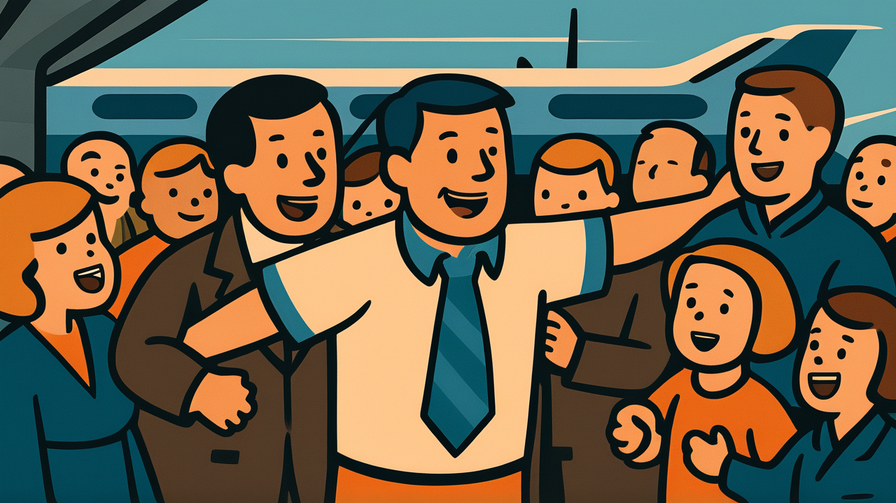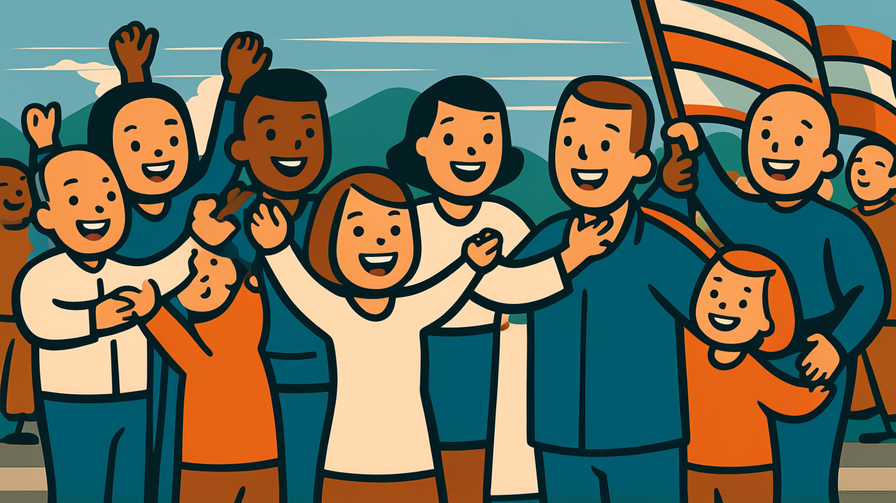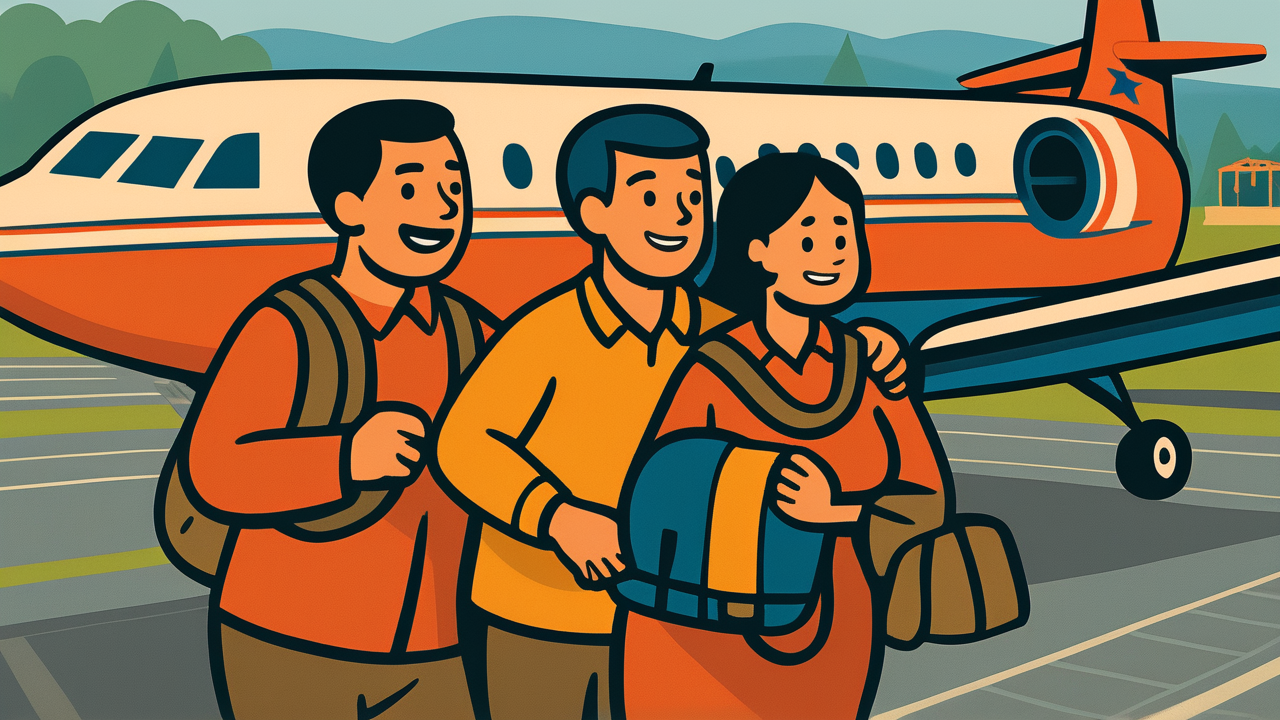[Disclaimer] This article is reconstructed based on information from external sources. Please verify the original source before referring to this content.
News Summary
The following content was published online. A translated summary is presented below. See the source for details.
On July 18, 2025, the United States successfully negotiated the release of ten American citizens who were detained in Venezuela, marking a significant diplomatic achievement. Secretary of State Marco Rubio announced that all Americans wrongfully held in Venezuela are now free and returning home. The release was facilitated through diplomatic channels, with El Salvador’s President Nayib Bukele playing a key mediating role. Venezuela had held more Americans in detention than any other country, often under questionable circumstances without proper legal proceedings. Along with the Americans, several Venezuelan political prisoners were also released, representing a broader humanitarian gesture amid ongoing tensions between the two nations.
Source: U.S. Department of State
Our Commentary
Background and Context

Imagine being locked up in a foreign country far from home, not knowing when—or if—you’ll ever see your family again. That was the reality for ten American citizens held in Venezuelan prisons until this week’s dramatic release.
Venezuela and the United States have had a rocky relationship for years. Think of it like two neighbors who strongly disagree about everything and stopped talking to each other. Venezuela is led by Nicolás Maduro’s government, which the US and many other countries don’t recognize as legitimate. They believe Venezuela’s elections weren’t fair and that the government violates human rights.
When countries have bad relationships, sometimes their citizens get caught in the middle. Americans traveling or working in Venezuela could be arrested on unclear charges—sometimes as bargaining chips in larger political games. These people are called “wrongfully detained” when they’re held without proper legal reasons.
Expert Analysis
This prisoner release reveals several important aspects of international diplomacy:
• Third-party mediation: El Salvador’s president helped negotiate between the US and Venezuela, showing how neutral countries can bridge gaps
• Prisoner diplomacy: Countries sometimes use detained foreigners as leverage in negotiations
• Humanitarian gestures: Releasing political prisoners alongside Americans suggests Venezuela might be seeking improved relations
• Timing matters: This happened early in a new US administration, possibly signaling openness to dialogue
The fact that ALL American detainees were released is unusual—typically, such negotiations result in partial releases, making this a significant diplomatic victory.
Additional Data and Fact Reinforcement
The human cost of diplomatic tensions is substantial:
• Before this release, Venezuela held more American detainees than any other country globally
• Some Americans had been detained for several years, missing birthdays, graduations, and family milestones
• Venezuelan prisons are known for harsh conditions, including overcrowding and limited medical care
• An estimated 300+ political prisoners remain in Venezuelan custody
The involvement of El Salvador’s president is particularly interesting, as his country has maintained relationships with both the US and Venezuela, allowing him to serve as a trusted intermediary.
Related News
This release connects to broader patterns in international relations. Recently, we’ve seen several high-profile prisoner exchanges:
• Russia and the US exchanged prisoners in 2022, including basketball star Brittney Griner
• Iran has periodically released Western prisoners in exchange for frozen assets or sanctions relief
• China and Canada resolved a years-long diplomatic crisis through prisoner releases
These exchanges show how “hostage diplomacy” has become a concerning trend in international relations, where citizens become pawns in larger political games.
Summary

The release of American detainees from Venezuela represents more than just a happy homecoming—it’s a window into how modern diplomacy works. When traditional channels fail, creative solutions involving third parties, humanitarian gestures, and careful timing can achieve breakthroughs.
For students interested in international relations, this case demonstrates that diplomacy isn’t just about presidents meeting—it involves countless officials, mediators, and negotiations happening behind the scenes. Every freed prisoner represents months or years of patient work by diplomats who never give up on bringing their citizens home.
This success story reminds us that even in the most difficult international relationships, dialogue and negotiation can produce positive outcomes that reunite families and save lives.
Public Reaction
Families of the released Americans expressed overwhelming relief and joy. One family member told reporters: “We never gave up hope, but there were dark days when we wondered if this would ever happen.”
Human rights organizations praised the release but emphasized that hundreds of Venezuelan political prisoners remain detained. Amnesty International called for continued pressure to free all unjustly held individuals.
Some critics questioned whether the US made concessions to secure the release, though officials haven’t disclosed full details of the negotiations.
Frequently Asked Questions
Q: Why were Americans detained in Venezuela?
A: The Venezuelan government often accused them of espionage or conspiracy, though the US maintains these charges were false or exaggerated. Some may have simply been in the wrong place at the wrong time.
Q: How do governments negotiate prisoner releases?
A: Through diplomatic channels, often using intermediary countries or international organizations. Negotiations can involve prisoner exchanges, policy changes, or humanitarian gestures.
Q: Can Americans safely travel to Venezuela now?
A: The State Department still advises against travel to Venezuela due to crime, civil unrest, and the risk of wrongful detention. This release doesn’t mean the underlying tensions have been resolved.


